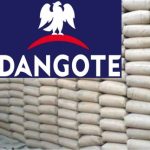Economic exerts have reacted to the upward spiral of the Nigerian inflation rate, calling for critical government intervention measures to save the situation.
In a report released on Monday, by the National Bereau of Statistics (NBS) on the inflation data for September on Monday, Headline inflation in September surged to 26.7%, compared to 25.8% in August, and food inflation followed an upward trend, reaching 30.64% in September.
Join our WhatsApp ChannelThese figures have jilted many about the potential for stagflation and continued economic challenges including the adverse impact on the populace, particularly in terms of purchasing power and poverty levels.
The NBS report attributed the increase to rise in prices of food as food inflation rate increased year-on-year- to 30.64 per cent from 29.34 per cent in August. This it said was due spike in prices of oil and fat, bread and cereals, potatoes, yam and other tubers, fish, fruit, meat, vegetables and milk, cheese, and eggs.
READ ALSO: NBS Releases Latest Data On Food Prices As Nigeria’s Inflation Hits 26.72%
Prime Business Africa reports that this is despite that President Bola Tinubu had in July declared an immediate State of Emergency on food insecurity to tackle the increase in food prices.
Reacting to report, Dr. Muda Yusuf, CEO of the Centre for the Promotion of Private Enterprise (CPPE), outlined some of the key factors contributing to the inflationary pressures.
According to him, some of these factors which are primarily supply-side issues, include the depreciation of the exchange rate, soaring transportation costs, logistics challenges, forex market illiquidity, a and a significant increase in diesel costs.
Others, he further elucidated, are climate change, insecurity in farming communities, and structural bottlenecks in production.
“These factors include the depreciating exchange rate, surging transportation costs, logistics challenges, forex market illiquidity, astronomical hike in diesel cost, climate change, insecurity in farming communities and structural bottlenecks to production. These are largely supply side issues. Elevated inflationary pressures also aggravate pressure on production costs, weakens profitability, erodes shareholders value and dampens investors confidence.” he said.
Elevated inflationary pressures not only affect consumers but also have a detrimental impact on businesses. Dr. Yusuf explained that these pressures increase production costs, weaken profitability, erode shareholder value, and dampen investor confidence.
Many producers and service providers are unable to transfer the increased costs to their customers, especially those dealing with products that have high demand elasticity. As a result, manufacturers and other investors in the economy are taking a significant hit.
To combat the rising inflation, the former DG of the Lagos Chamber of Commerce and Industry advised that there is a need for urgent government intervention to address the underlying challenges affecting production, and security in the economy.
“Tackling inflation requires urgent government intervention to address the challenges bedevelling production, productivity and insecurity in the economy. The real sector of the economy needs to be incentivised to ensure moderation of production costs. The government could tweak the tariff policies by granting concessionary import duty on intermediate products for industrialists. The same is true of investors in logistics sector. The effects of high energy cost is devastating. We need a declaration of state of emergency in the energy and power sectors.” he added.
He recommended incentivizing the real sector of the economy to moderate production costs. One approach could involve adjusting tariff policies to grant concessionary import duties on intermediate products for industrialists and investors in the logistics sector.
Furthermore, Dr. Yusuf highlighted the devastating effects of high energy costs on the economy and called for a declaration of state of emergency in the energy and power sectors. He emphasized that taming inflation would be difficult without addressing issues related to power, logistics, and foreign exchange.
While acknowledging that there are no quick fixes for these challenges, Dr Yusuf stressed the importance of prioritizing these issues and implementing strategies for accelerated progress.
However, the surge in inflation to 26.7% in September has raised significant concerns among experts, who call for immediate government action to mitigate the factors driving inflation and protect the economy from further harm.
Emmanuel Ochayi is a journalist. He is a graduate of the University of Lagos, School of first choice and the nations pride. Emmanuel is keen on exploring writing angles in different areas, including Business, climate change, politics, Education, and others.



















Follow Us